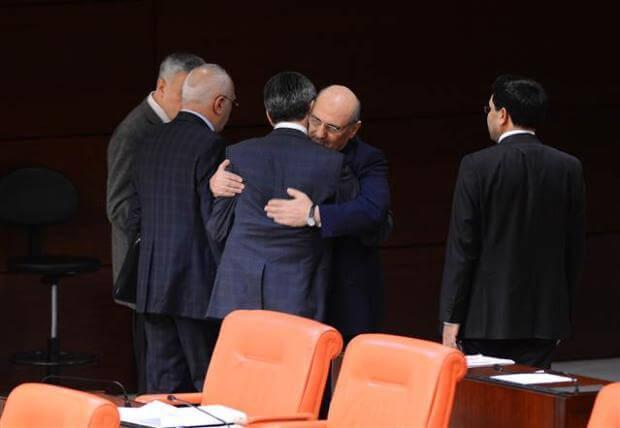Explained: AKP fails to keep unity over corruption vote
Serkan Demirtaş - ANKARA
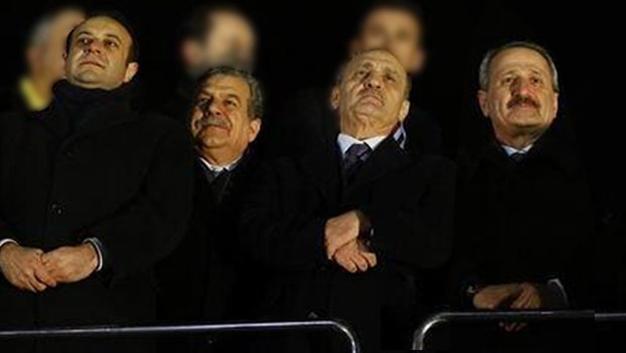
(L-R) Former ministers Egemen Bağış, Muammer Güler, Erdoğan Bayraktar and Zafer Çağlayan.
A historic vote at the Turkish Parliament that acquitted four former ministers over corruption claims has revealed a fissure within the ruling Justice and Development Party (AKP), after dozens of its lawmakers broke the party line to send the accused ministers to the top court.The division over the corruption vote has been interpreted as particularly significant for the AKP, which is known for its strict party discipline, months after Ahmet Davutoğlu took the helm as party chairman from Recep Tayyip Erdoğan, who is now the President.
The AKP, with 312 deputies at parliament, failed to secure 276 votes - the simple majority required for a vote of confidence - in the votes carried out for former ministers Egemen Bağış, Zafer Çağlayan, and Muammer Güler. The exception was former Environment Minister Erdoğan Bayraktar, who secured 288 supporting votes.
A similar division was observed in 2003, when parliament voted on whether to take part in the United States’ invasion of Iraq and open its territories to U.S. troops. Then, 97 AKP lawmakers out of 361 voted against the motion, which led to the refusal of permission to the U.S. to open a northern front against the Saddam Hussein regime.
Here are some key details of the Jan. 20 votes:
Davutoğlu’s absence: AKP Chairman and Prime Minister Ahmet Davutoğlu was in London on Jan. 20, so was absent at the vote along with five other ministers, including Deputy Prime Minister Ali Babacan and Finance Minister Mehmet Şimşek. Although Davutoğlu could have postponed his trip to London or departed after the vote, he instead chose not to attend it. There is no proof that the number of dissidents would have been lower if Davutoğlu had been present at parliament, but he obviously did not prefer to witness this scene, allowing Deputy Prime Minister Yalçın Akdoğan to vote for him.
The “three-term rule” effect: Many of those who voted against the former ministers are thought to be deputies who will not be able to run for parliament in the upcoming elections because of the AKP’s strict three-term limit. This may be the most important reason for such a high number of lawmakers breaching Erdoğan’s line.
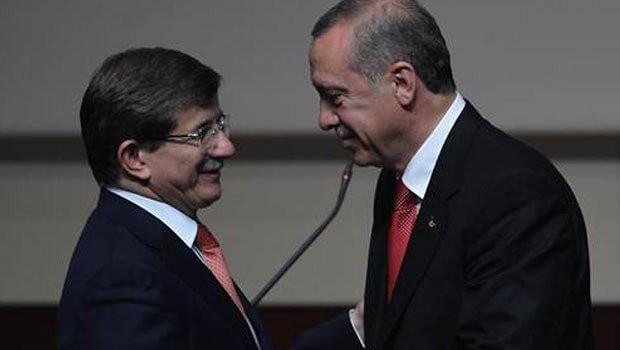
Davutoğlu and Erdoğan in August 2014.
Egemen Bağış: Former EU Minister Egemen Bağış caused the deepest division within the party, with 48 of his AKP comrades voting to send him to the Supreme Council for trial. Bağış was accused of accepting bribes worth 1.5 million euros from Iranian-Azeri businessman Reza Zarrab, in return for using his ministerial influence to Zarrab’s advantage. Not only does Bağış seem to be least sympathetic of the four former ministers, but a voice recording allegedly belonging to him, in which he appears to make fun of Islam, may also have been an important factor as to why he got fewer votes than his three colleagues.
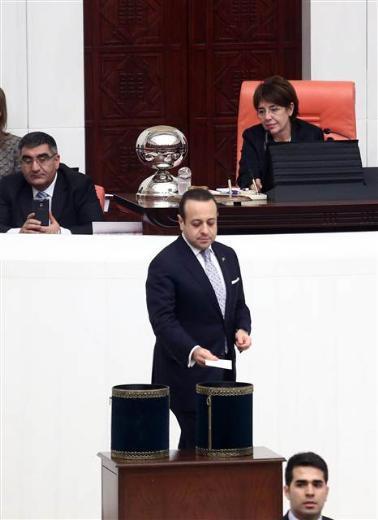
Muammer Güler: Former Interior Minister Muammer Güler followed Egemen Bağış in the league of AKP dissidents voting to send them to the top court. 44 AKP lawmakers wanted to send him to the Supreme Council. One of the most important reason was the fact that Güler could not well explain the sharp increase in his assets during the parliamentary panel probe. Güler was, too, accused of engaging in unethical money relations with Reza Zarrab.
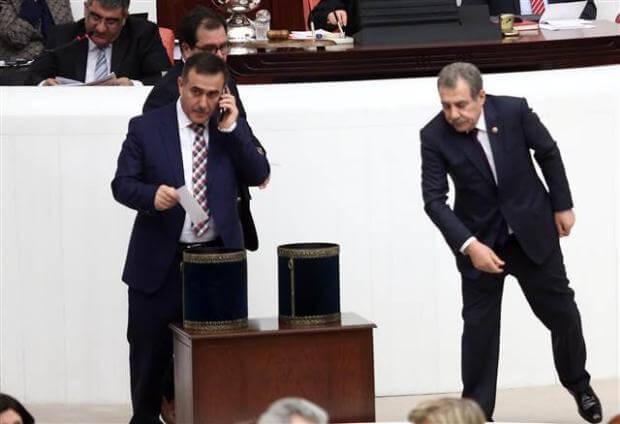
Zafer Çağlayan: Former Economy Minister Zafer Çağlayan was absent at parliament during the vote, as he was attending the funeral of his stepmother. Çağlayan had hit headlines due to his acceptance of a bribe worth 700,000 Turkish Liras from Zarrab, along with a luxury piano. Some 37 AKP deputies voted to send him to the Supreme Council on Jan. 20.
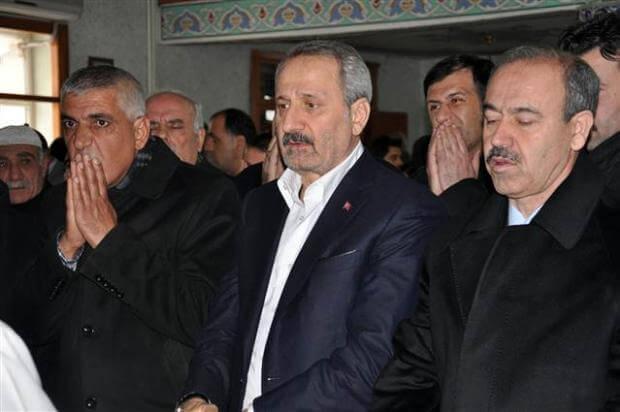
Zafer Çağlayan was not present at parliament on Jan. 21 because of a funeral for his mother.
